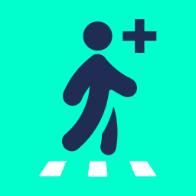-900x502.jpg) Here are our top tips for staying safe.
Here are our top tips for staying safe.
Stay alert
Keep your belongings in your pocket and stay alert when travelling to or from campus and whilst you’re on it, particularly when it’s dark. Like in any town or city, sometimes theft happens, but if your phone is safely in your pocket or bag you can keep any risk to a minimum. Similarly when you’re on campus; whether you’re relaxing in a café or studying in the library don’t leave your belongings on show or unattended – even for a couple of minutes.
We also recommend that you stick to well-lit roads and pavements as you travel around your campus town or city and avoid using underpasses where possible. If you wear noise cancelling headphones make sure to change the settings so you can still hear your surroundings whilst you’re out and about.
Remember Campus Safety and Security are here to help you 24/7
If you need an emergency service, phone 999 from any mobile phone or landline.
If you need non-emergency Police advice, you can phone 101.
If you require non-emergency medical advice then you can phone 111.
If you need an emergency response from the University then please phone security/reception as below. Security will escalate as appropriate.
| Security 24hr cover | Ambleside | Brampton Road | Fusehill Street | Lancaster |
|---|---|---|---|---|
| Security location | The Barn | Learning Gateway | Learning Gateway | Library foyer |
| Telephone | 07809190531 |
07809190541 (Till 10.30pm Mon – Fri) 07809190530 (on weekends) |
07809190530 | 07809190566 |
*Brampton Road is covered by the security team at Fusehill Street - please call for any issues or emergencies.
Travel With Friends & Walk Safe App
General Advice
If you’re nervous about travelling alone then why not check in with a friend and see if you can go together. Especially if you’re planning a night out, chat to your mates and see how you’re getting to and from wherever you’re going and keep an eye out for anyone travelling alone.
If you do travel on your own, make sure to let someone know when you expect to be back and your intended route. You could even share your location using one of the safety apps mentioned below so you can keep an eye on each other.
 Walk Safe
Walk Safe
WalkSafe+ is the UK’s leading personal safety app which combines journey-sharing features and a national Safe Space map. The map plots safety-trained venues across the UK in partnership with Local Authorities and Businesses that offer safety facilities such as phone charging stations and free period products, enabling our users to find help in real-time while on their commute home. WalkSafe+ has a suite of tracking and non-tracking features available, which enables trusted friends to follow your live journey should you need it.
The free app has received the backing of organisations and agencies including Cumbria Police, Cumberland Council, Armstrong Watson and the University of Cumbria.
The app features a map of the city that pinpoints local venues that have received accreditation in certain safety standards that may make people feel safer on a night out.
The app also can help people plot a safer route home.
Users can share their live location with trusted contacts and the app will notify friendly and family when they get home safe.
It features an SOS button to alert trusted friends immediately that you feel in danger. The app also highlights features such as:
- Venues that operate the Ask for Angela scheme, where people can ask a member of staff for support by “asking for Angela”.
- On-street support, such as the Safer Streets Welfare Hub in Carlisle City Centre.
Other apps for extra peace of mind
There are apps that can help keep you safe if you are travelling further outside of campus. My SafetiPin, the highest-rated app designed to keep women safe which uses your GPS location to help calculate the best routes to get you from A to B. bSafe has a range of features, such as an SOS button, which can be activated by touch or voice and records your surroundings to send to your chosen contacts, and lets you invite your contacts to follow your location via GPS. There’s also a Fake Call feature, which you can use to make your phone ring to get you out of situations you’re unsure of.
Report unacceptable behaviour
At the University of Cumbria we have a zero-tolerance approach to sexual misconduct, bullying, harassment and discrimination. If you have witnessed any forms of this behaviour, or have a safeguarding concern, you can report it anonymously or get support from a trained advisor. Find out more at You Report We Support.
Looking after yourself
We know that life can sometimes bring its own challenges. If you’re struggling or feeling anxious about your safety or you’re feeling apprehensive about travel to and from campus, we’re here to help.
Sometimes we all need to let it out and talking to someone you trust or speaking to a friend can really help alleviate your worries. See if there’s someone you live with, on your course or a friend from home that is free to have a chat.
If that doesn’t work for you, don’t forget that our is available to you all year round, from one to one appointments to one-off workshops and online help, there’s something for everyone.
